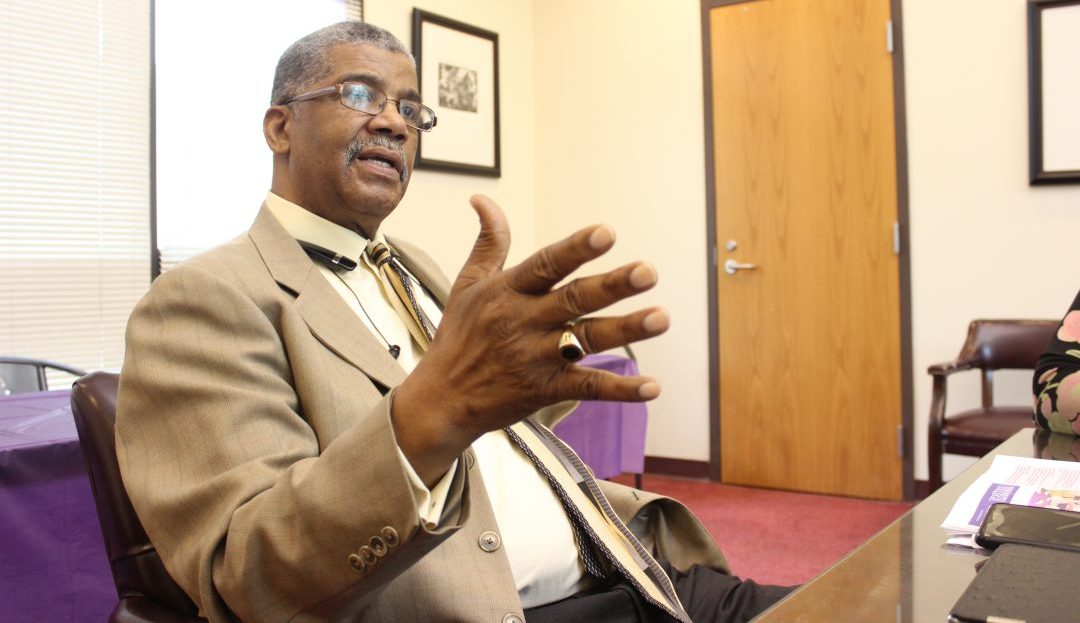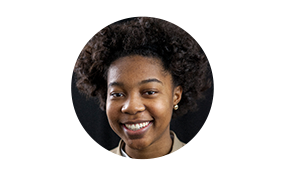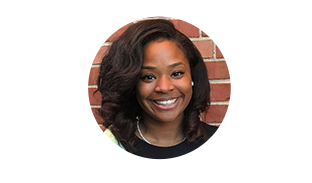“WE’RE STILL HERE”: MORRIS BROWN COLLEGE PRESIDENT, ALUMS TALK ABOUT THE INSTITUTION’S SLOW ROAD BACK TO PROMINENCE

By Daja E. Henry, Ila Wilborn |The Atlanta Voice
If you run into a Morris Brown College student or alumnus, there’s one phrase that is bound to escape their lips: “We’re still here.”
Sharron Strickland-White, a Morris Brown alumna and former Miss Morris Brown College (1963), is one of the many Wolverines who proudly hold on to her institution’s legacy.
Another important aspect of the HBCU is its rich history.
Morris Brown College was established in 1881, by members of the African Methodist Episcopal (AME) Church.
The institution was named after one of the founders of the AME tradition, Rev. Morris Brown, of Charleston, South Carolina.
Upon receiving its charter in 1885, Morris Brown College opened its doors on October 15, 1885, and at the time, there were nine teachers and 107 students enrolled.
It was the first school founded for Black people, by Black people, in the state of Georgia. The college was founded right in the basement of Big Bethel AME Church, the oldest Black congregation in the heart of Atlanta’s Sweet Auburn neighborhood just shy of downtown.
At the institution’s peak, it educated as many as 2,500 students.
However, difficult times would befall Morris Brown when, in 2003, the school lost its accreditation due to issues with money mismanagement.
The institution was subsequently cut off from federal financial aid. To make matters worse, the institution was forced to withdraw from Atlanta University Center Consortium (AUC), a consortium of Atlanta historically black colleges, which includes Clark Atlanta University, Morehouse College, Morehouse School of Medicine and Spelman College.
In 2010, Stanley Pritchett Sr. was named Morris Brown’s president, after serving as acting president for two years prior.
“We lost our accreditation due to some financial issues,” Pritchett said. “(It was) not due to the curriculum, not due to the faculty, and not due to the qualifications of staff and administration. It was basically because of some mistakes that were made in the financial arena.”
In 2012, the college filed for Chapter 11 bankruptcy.
According to the Administrative Office of the U.S. Courts, “A chapter 11 debtor usually proposes a plan of reorganization to keep its business alive and pay creditors over time.”
Despite its financial issues, Morris Brown College has never closed its doors. During Pritchett’s time as president of the college, Morris Brown’s debt has immensely been reduced.
“We had $32 million worth of debt that had been sitting on the books for about eight or nine years,” he explained. “In 2015, we came out of bankruptcy and had only $3 million worth of indebtedness. And that was to the AME church.”
With its debt nearly eliminated, the college began to seriously look at accreditation as its main priority.
The school has been working with an independent consultant to file its application. If accepted, the school will receive its accreditation by the end of 2019.
However, Morris Brown College resides in the shadows of the Atlanta University Center, which is comprised of three of the top liberal arts HBCUs in the country.
There are countless Facebook fundraisers, such as “Cementing the Legacy,” and alumni affinity groups like Women for Morris Brown College Inc., that hold events dedicated to Morris Brown’s cause.
Syndicated radio host Tom Joyner donated $1 million and even offered to buy the college.
Joyner’s foundation also worked with Morris Brown College to launch a campaign that proposed to raise $20 million by 2020.
Though Morris Brown has produced legions of alumni, Pritchett said he believes that having a dedicated group of former students that consistently give back to the college is an issue of quality over quantity.
“We have a group of about 700 alumni that give close to $1 million a year to Morris Brown College,” said Dr. Pritchett. “That’s about 6 percent of the college’s 12,000 alumni.”
Pritchett said he hopes to get the alumni giving rate up to 20 percent.
While money is generally an issue for private HBCUs like Morris Brown, the bigger issue lies in carving out a niche that sets the college apart from the HBCUs around it.
What would attract students to a college that is not accredited?
The college offers three academic degree programs: psychology, music, and organizational management and leadership (OML), an adult education program. According to Pritchett, the adult education program is what sets the school apart.
“Not many [institutions] have a program where you can get credit for prior learning,” he said.
The program allows nontraditional students who have been in the military or the workforce to get credit for any classes they’ve taken in the past and up to 30 credits for their work experience.
Pritchett projects between 15-40 students will enroll in the OML program this upcoming semester.
Pritchett also revealed plans to start a culinary program and a hospitality program, which he believes will push Morris Brown College to the forefront of adult education.
For the upcoming 2018-2019 academic year, Morris Brown has accepted 25 freshmen and expects to have another 15 returning students.
To connect with the younger crowd of prospective students, Pritchett and his team have enlisted DeVonne McKenzie as coordinator of on-campus recruitment.
It is McKenzie’s personal touch that Pritchett says attracts prospective students and retains the students she has recruited.
The worst appears to be behind Morris Brown College. The institution has eradicated a significant level of debt and appears to be well on its way to once again being an accredited institution.
Alumni and other groups return to the campus often, to participate in events such as the Freshman Induction Ceremony, Homecoming, Juneteenth ceremony, and, last weekend, the Atlanta Greek Picnic.
More than 1,000 prospective students expressed interest in attending Morris Brown for the upcoming academic year.
Given its rich heritage, and its dedication to once again becoming one of the premier HBCUs in the Atlanta area, Morris Brown College has demonstrated that it is here to stay.
PHOTO: Morris Brown College President Stanley Pritchett Sr. opens up about the status of the once-prominent HBCU and member of the AUC. (Photo: Daja Henry / The Atlanta Voice)

DAJA E. HENRY
TEAM AUTHENTIC
Daja has been an intern at the Congressional Black Caucus, the New Orleans Tribune and Where Y’at Magazine, a participant in the National Association of Black Journalists (NABJ) Student Multimedia Project, a student at the Universidad Del Mar in Oaxaca, Mexico, and briefly, a crew member at McDonald’s. Her latest read was A Mouth is Always Muzzled , detailing the effects of colonialism in Guyana and how art can be utilized in the development of a country.

ILA WILBORN
TEAM AUTHENTIC
Ila Wilborn is on the President’s List with over 200 community service hours in the Tallahassee community. Wilborn is also a published staff writer for The FAMUan , an active member of the National Association of Collegiate Scholars, Phi Sigma Theta National Honor Society, and the FAMU Chapter of NAACP.

